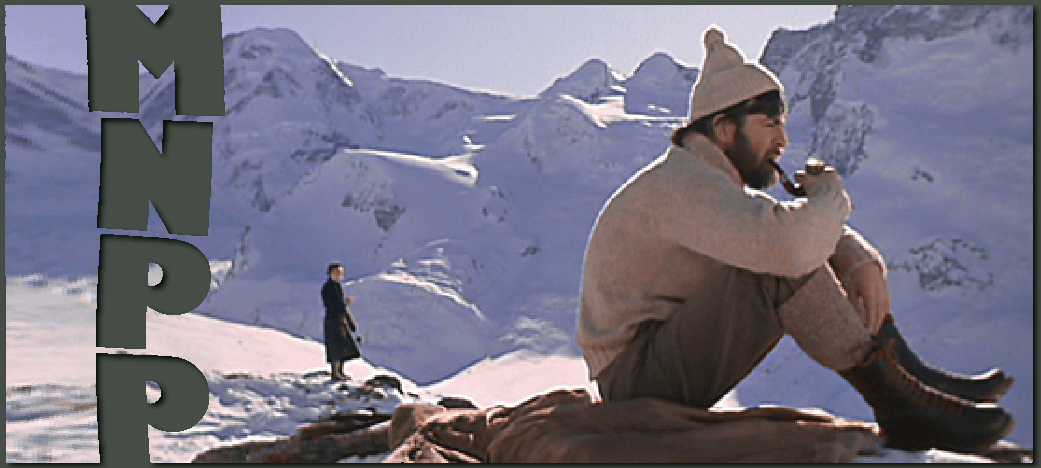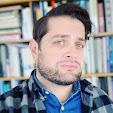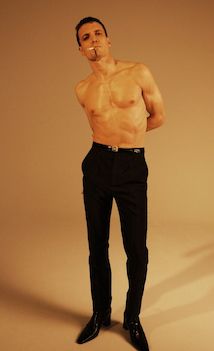
I saw V For Vendetta over the weekend, and probably enjoyed it more than I should have. Subtle, it ain't - it hits you about the neck and face with it's Very Serious Themes non-stop, and, as the boyfriend put it very succinctly, the entire film feels like one trailer for itself after another.
But, I liked it. I enjoyed what it was saying, even if it was as sharp as a meat mallet in doing so.
One aspect of it I found especially striking was the positivity in which gayness was shown and defended. Within the totalitarian regime the film takes place in, all differences are eradicated... which is sorta par for the totalitarian course. Anyway, the film makes a clear point that what begins with hatred toward homosexuals will surely spiral further - homophobia is sort of the gateway drug to fascism.
One of the first to be inspired by our "hero/terrorist" V's war on the establishment is a TV host played by Stephen Fry, a gay man forced into the closet, and his eventual strike against the goverment is a big part of what drives Evie, Natalie Portman's character, to take her own stand.
And then... well, I'll let The Big Gay Picture say this part for me:
But, I liked it. I enjoyed what it was saying, even if it was as sharp as a meat mallet in doing so.
One aspect of it I found especially striking was the positivity in which gayness was shown and defended. Within the totalitarian regime the film takes place in, all differences are eradicated... which is sorta par for the totalitarian course. Anyway, the film makes a clear point that what begins with hatred toward homosexuals will surely spiral further - homophobia is sort of the gateway drug to fascism.
One of the first to be inspired by our "hero/terrorist" V's war on the establishment is a TV host played by Stephen Fry, a gay man forced into the closet, and his eventual strike against the goverment is a big part of what drives Evie, Natalie Portman's character, to take her own stand.
And then... well, I'll let The Big Gay Picture say this part for me:
"Fry's storyline is nothing compared to that of Valerie (Natasha Wightman), a lesbian whose life is told in an extended flashback. Indeed, this is where Vendetta becomes truly extraordinary as we learn it is Valerie's story--more specifically, her unwavering love for a woman named Ruth (Mary Stockley)--that inspires his vendetta.
During the flashback, we see Ruth dragged away, and two gay men hauled from their beds and beaten. We hear Valerie wonder, "I don't understand why they hate us so much." We then see her arrested, and dragged off to a prison where she is subjected to terrible medical experiments.
It is there that Valerie, fighting to hold onto her humanity, resists her fate by committing her story to paper. She writes how it is her integrity that is the most important thing in the world; that as long as she has that last inch of herself, she is still free in some sense.
"It's strange that my life should end in such a terrible place, but for three years I had roses and I apologized to nobody. I shall die here. Every last inch of me shall perish. Except one. An inch. It's small and it's fragile and it's the only thing in the world worth having. We must never lose it, or sell it, or give it away. We must never let them take it from us."
Evey eventually reads Valerie's letter too and, like V, is changed forever, suddenly unwilling to live the life of a docile sheep.
It is an extraordinarily powerful moment in the film, not just because it is beautifully acted and well-written, but because it is so utterly unexpected."
It really was unexpected, though hardly surprising once I remembered that 1/2 of the Wachowski Bros. is, uh, a professional dominatrix's slave and, I believe, either a cross-dresser or transgendered... who knows, these stories seem to get more elaborate each time I hear them and he himself doesn't speak out about it. But he's the non-conventional type, that much is a given.
Anyway, that's not the point - it's that the impetus for V's revolution is the beauty and purity of gay love and the fascist drive to stamp that love out of existence. Yes, it may fall prey to the same thing Brokeback did - enshrining gay love as The Holiest Thing Ever - but frankly, I'll take that, and more of it. It reminds me of Sidney Poitier's breakthrough films back in the 50's and 60's - first the ideal has got to be instilled, then there will be room for realness, to show the cracks. Poitier's character's are criticized now for being Perfect Black Men, noble to a fault, but I think you need that basis first.
So yes, gay love is idyllic, America! We are the American Dream now! Wha ha ha!
So yes, gay love is idyllic, America! We are the American Dream now! Wha ha ha!





































No comments:
Post a Comment